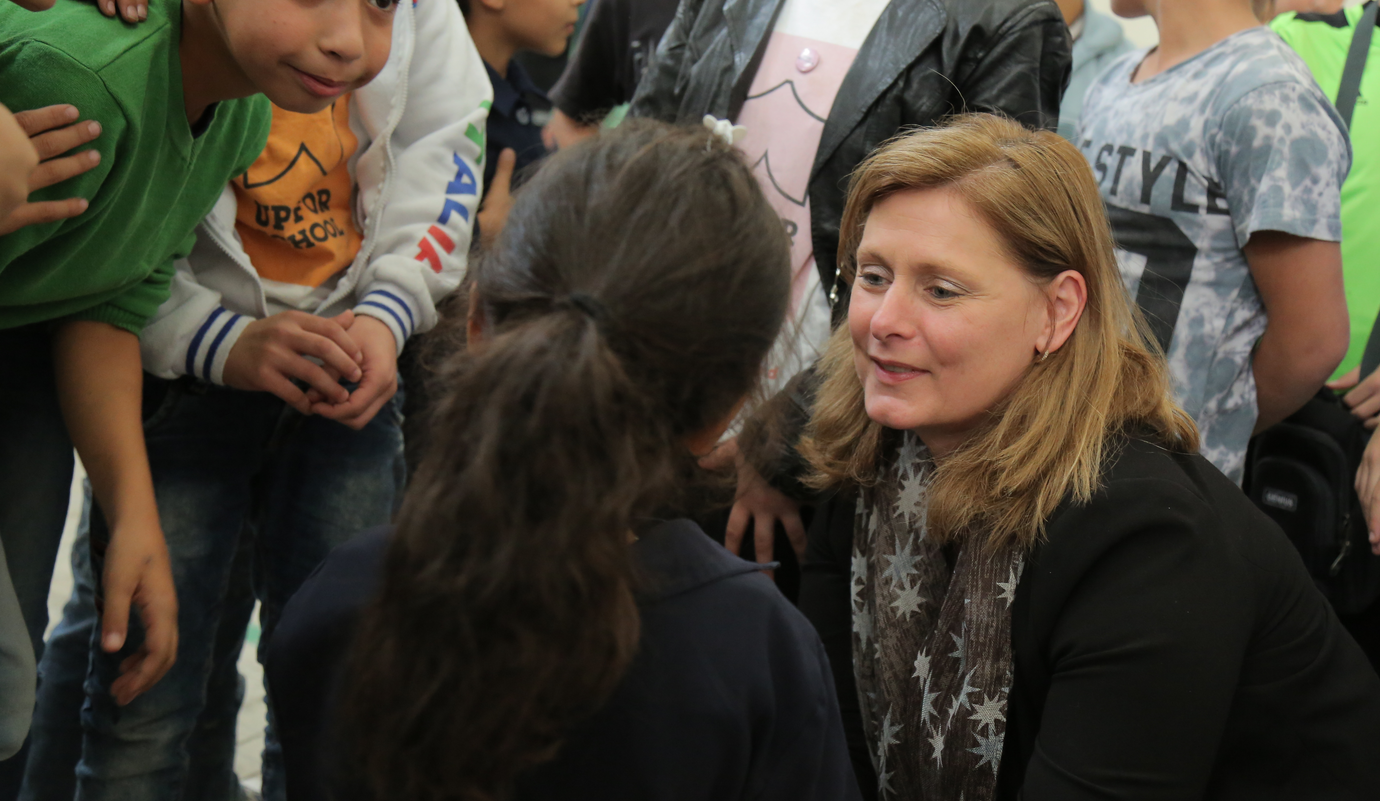
Young leaders and education ministers urge G20 to act on learning and youth skills
Education funding, Right to education
Ahead of a summit of the world's most powerful leaders in Argentina, politicians and youth campaigners have been stressing the crucial role of education.
Education will be high on the agenda when the leaders of the world’s most powerful countries meet at the G20 summit in late November.
Argentina has made sure of that. It holds the 2018 presidency and believes that education is key to meeting all the major global challenges.
For the first time ever, G20 education ministers had their own meeting yesterday in the Argentinian city of Mendoza. And last month the Y20 – young leaders from G20 members and other countries – came up with key proposals on education during a week of talks in Cordoba.
These summits have been setting the scene for the crucial main event – the G20 summit in Buenos Aires on November 30 and December 1.
“Without education, human skills cannot be developed. People cannot develop. And without human development, it will not be possible to achieve sustainable development around the world,” said Argentinian Education Minister Alejandro Finocchiaro at the ministers’ meeting.
The backdrop to yesterday’s talks was more than 260 million children out of school and hundreds of millions more lacking the skills needed for jobs now and in the future.
As well as youth skills, education financing was a major topic. Last year the G20 committed to act on an innovative funding plan to help millions of children into school – the International Finance Facility for Education (IFFEd).
After yesterday’s talks, Finocchiaro said: “We have been working on the interaction between the world of labour and the world of education, and on how we build abilities and skills for life, from childhood to adulthood.”
The ministers issued a declaration – a wish list of recommendations for the main G20 summit. They included a call for more investment in early childhood development and highlighting the links between ECD, school education and success in later life.
The declaration said existing and potential funding mechanisms were vitally important – without specifically naming IFFEd. But it did say: “We commend the endeavour of creating conditions for the emergence of innovative instruments for financing education in line with the 2030 Agenda.”
Campaigners have been urging the G20 to Make The Impossible Possible by giving full backing to IFFEd – a big idea that could help to deliver quality education for millions of children.
Young people led the way and last year three of Theirworld’s Global Youth Ambassadors delivered messages from 1.5 million people to United Nations Secretary-General António Guterres, calling for IFFEd to be launched.
At the recent Y20 summit, delegates also called for free and quality education for every child in every country from the age of three. Like the education ministers, they issued a set of recommendations on education, youth skills, climate change and other issues after a week of talks.
“Young people are not the future – they are the present and they are changing the world right now,” said Y20 chair and social entrepreneur Batto Carol.
Here are some of its other education recommendations:
- Governments should recognise the specific educational requirements of all marginalised groups and vulnerable people.
- Teachers must be trained to create in-school support systems and adaptable learning environments for people with disabilities.
- Official campaigns against violence in schools based on gender, identity and disability.
- Align education curricula with the needs of employment.
See the full recommendations here.
The Y20 also recommended specific projects to governments that are already successful in some countries – including My-Pal, a network of mentors that helps the most vulnerable adolescents through tutoring.
Speaker Ilona Dougherty, general director of research on youth and innovation at the University of Waterloo in Canada, said: “What we conclude is that young people are naturally connected to innovation, they do not have to be taught.
“Instead of seeing young people as a problem to be solved, we have to recognise that they are the solution.”

More news

Young people’s tireless campaign for an education game-changer
